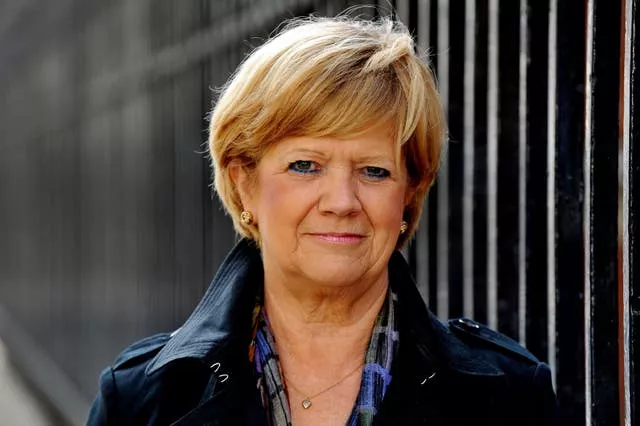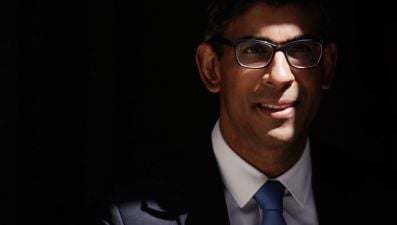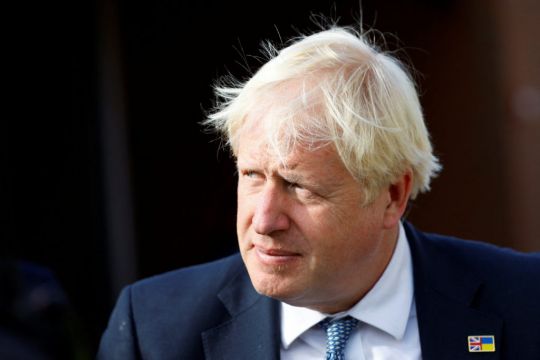Downing Street has rejected claims of a “cover-up” as the Covid-19 inquiry extended the deadline for the Government to hand over Boris Johnson’s unredacted WhatsApp messages and notebooks.
As Tuesday’s deadline approached, the Cabinet Office was given until 4pm on Thursday to turn over the evidence after officials claimed they do not possess all the documents demanded.
The former prime minister insisted he has “no objection” to handing over the evidence as his successor Rishi Sunak insisted the government was acting “in a spirit of transparency and candour”.
But inquiry chair Lady Hallett demanded a witness statement from a senior civil servant accompanied by a statement of truth confirming the documents are not held if the Cabinet Office fails to produce them by the new deadline.
Former head of the Civil Service Lord Kerslake told BBC Radio 4’s Today programme: “There’s some cover-up going on here to save embarrassment of ministers, but there’s also the Cabinet Office fighting for a principle of confidentiality.
“I have to say I think they’re misguided on this situation. I actually think it would set a helpful precedent if Lady Hallett prevailed in this fight about the information.”
The British prime minister’s official spokesman flatly denied the allegation of a cover-up, saying: “No. We want to learn the lessons about the actions of the state during the pandemic, we want that to be done rigorously and candidly.”
He said there is no requirement to “permanently store or record every WhatsApp”, with messages related to decision-making instead copied over to the official record.
But the spokesman said it is “down to individuals to decide what personal information they are able to hand over”.
Lady Hallett rejected a request to extend the request for compliance with her demands for disclosure until Monday, but agreed to the shorter extension.
“Second, the inquiry was informed that the Cabinet Office does not have in its possession either Mr Johnson’s WhatsApp messages or Mr Johnson’s notebooks, as sought in the original section 21 Notice,” a notice from the inquiry added.
Labour said the evidence that has seemingly “gone missing” must be found and presented to the Covid-19 inquiry to avoid the “whiff of a cover-up”.
Deputy leader Angela Rayner said: “The fact the Covid inquiry has invoked legal powers to compel the handover of crucial documents in the face of legal battles and delaying tactics shows this is a Government with much to hide.
“It now appears that vital evidence has gone missing. It must be found and handed over as requested if the whiff of a cover-up is to be avoided and bereaved families are to get the answers they deserve.”
Mr Johnson’s office said he “has no objection to disclosing material to the inquiry”.
“He has done so and will continue to do so,” the former prime minister’s spokesman said.
“The decision to challenge the inquiry’s position on redactions is for the Cabinet Office.”
Mr Johnson’s team says the notebooks and WhatsApp messages have been handed to the Cabinet Office legal team, but he has since parted ways with his government-appointed lawyers.
The former prime minister says he has not had a request from the Cabinet Office since telling officials in a letter on Friday any request for material must be in writing to him.
According to his team, his message to the department said: “If the Cabinet Office requires any action to be taken regarding this or any other material you must tell me in writing.
“To date, our office is not aware of having received any instructions or requests from the Cabinet Office regarding this material.”
Mr Sunak and Mr Johnson are not scheduled to meet this week despite suggestions they would hold clear-the-air talks amid a row over the Covid-19 inquiry.
It is understood that there had been initial discussions about holding a telephone call but this is not scheduled to go ahead as it stands.

Whitehall officials are concerned about setting a precedent by handing over all the requested documents in unredacted form, rather than deciding what material is relevant and should be submitted to the inquiry.
Speaking to broadcasters during a visit to Kent, Mr Sunak said the Government was acting “in a spirit of transparency and candour”.
“The Government has co-operated with the inquiry; tens of thousands of documents have been handed over.
“With regard to the specific question at the moment, the Government is carefully considering its position but it is confident in the approach that it’s taking.”
The row was sparked by a legal request sent by the inquiry on April 28 for a number of materials, including unredacted WhatsApp messages and diaries belonging to Mr Johnson, from January 2020 to February 2022.
In May, the Cabinet Office resisted the request, which was made under section 21 of the Inquiries Act 2005 and which also applies to messages from Mr Johnson’s former adviser Henry Cook.
In a ruling last week, Lady Hallett rejected the argument that the inquiry’s request was unlawful and said the Cabinet Office had “misunderstood the breadth of the investigation”.
Refusing to comply with the request would lead to a legal clash with the official inquiry.
The demand covers text conversations between Mr Johnson and a host of government figures, civil servants and officials.
The list includes England’s chief medical officer Professor Sir Chris Whitty, as well as then-chief scientific adviser Sir Patrick Vallance.
Messages with then-foreign secretary Liz Truss and then-health secretary Matt Hancock are also requested, as well as with former top aide Dominic Cummings and then-chancellor Mr Sunak.
The inquiry had also asked for “copies of the 24 notebooks containing contemporaneous notes made by the former prime minister” in “clean unredacted form, save only for any redactions applied for reasons of national security sensitivity”.

In the note granting the extension, the inquiry said if the WhatsApp messages and notebooks cannot be produced, the Cabinet Office will need to provide witness statements from senior officials setting out what efforts have been made to find them, including contacts with Mr Johnson.
Officials will also have to explain whether the WhatsApp messages are on Mr Johnson’s personal phone or an official device.
The Cabinet Office must also explain whether it had either the messages or the former prime minister’s notebooks under its control at any time since February 3 and, if so, what happened to them.







